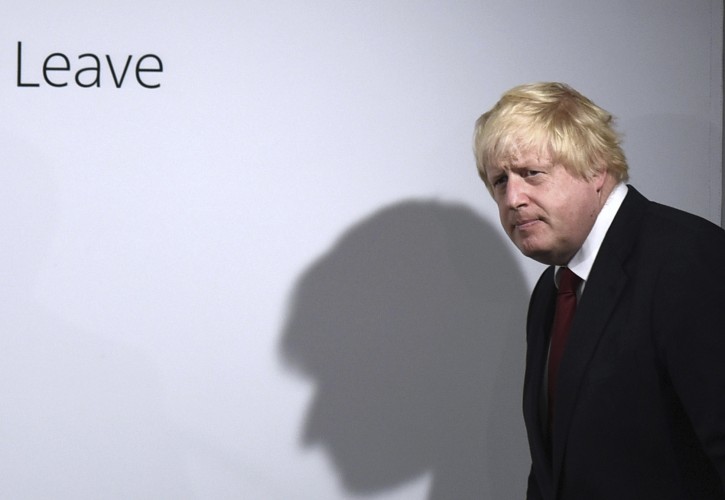
London – In the crucial days before Foreign Secretary Boris Johnson embraced Britain’s “leave campaign,” he wrote a newspaper column explaining why Britain should remain inside the European Union — but those forceful words were never published before Britain’s June 23 vote.
The Sunday Times has now published Johnson’s pro-EU column, which outlines his fears about leaving the EU.
Johnson told reporters Sunday it is “perfectly true” he was uncertain about which side to endorse when he wrote the unpublished column in February. But he said that when he compared it to a column he wrote in favor of leaving the EU, it was “blindingly obvious” that leaving was the better choice.
It has long been known that the Johnson wavered before breaking with then-Prime Minister David Cameron and playing a pivotal role in the successful “leave” campaign. But the column illuminates how Johnson would have made the case for staying in the EU.
In it, he warns of the potential “economic shock” that leaving might bring Britain, praises the value of having easy access to the EU’s huge single market and makes an emotional case for preserving ties to other European nations.
“Shut your eyes,” he writes. “Hold your breath. Think of Britain. Think of the rest of the EU. Think of the future. Think of the desire of your children and your grandchildren to live and work in other European countries; to sell things there, to make friends and perhaps to find partners there.
Ask yourself: Despite all the defects and disappointments of this exercise — do you really, truly, definitely want Britain to pull out of the EU?”
These words were not published before decisive June 23 vote. Johnson instead joined UK Independence Party leader Nigel Farage and some other Conservative Party figures to argue that Britain should cut its ties to the 28-nation bloc.
That decision gave the “leave” side a familiar, charismatic leader who lent credibility to the idea that Britain would be better off on its own.
The British vote to leave the EU ended Cameron’s tenure as prime minister and brought in Prime Minister Theresa May. She gave Johnson a key Cabinet post where he is influential on Syrian policy and helping to shape the Brexit negotiations.
As reported by Vos Iz Neias
